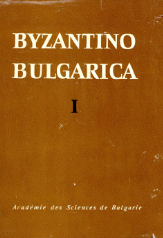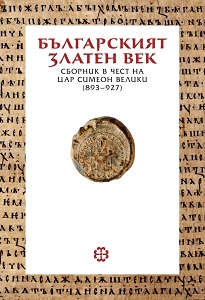
We kindly inform you that, as long as the subject affiliation of our 300.000+ articles is in progress, you might get unsufficient or no results on your third level or second level search. In this case, please broaden your search criteria.

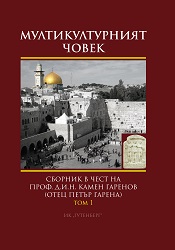
This paper is a historiographical analysis of Gen. Georgi Vazov's memoire-cum-travellogue titled 'In the Deserts of Central Asia'. It pinpoints the exceedingly valuable information about the history, the ethnic and religious identity of the region and mainly the Russian colonial penetration in Central Asia, the geopolitical relations between the two powers dominant in the region - Russia and the British Empire, and the dynamics of the borders, among others. It also follows the untraditinal approach of the military campaigns as a civilizational phenomenon expanding the outlook and the historical truthfulness of the nation. Parallels are sought between the linguistic and religious identity of Turkmens, Kalmyks, and Tajiks with first-hand tales about the distant ancient land of Bulgarians. Last, but not least, it comments on the participation of the general in the construction of the Trans-Siberian Railway. In conclusion, the paper speaks of Gen. Vazov's contribution to the treasury of Bulgarian historical geography and memoiristics.
More...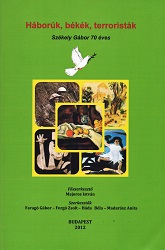
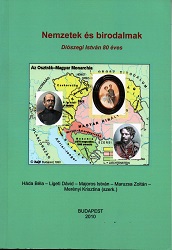



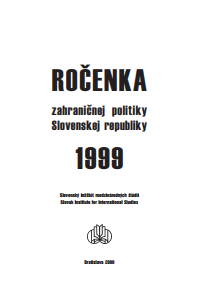
Naším prioritným strategickým cieľom je členstvo v Európskej únii. Už v decembri 1998 Národná rada SR prijala Deklaráciu o vstupe Slovenskej republiky do Európskej únie. Boli sme si vedomí toho, že rok 1999 bude prelomovým rokom. Počas celého hodnoteného obdobia sa Národná rada SR sústreďovala na naplnenie kodanských politických kritérií, na odstránenie deficitu demokracie, ktorý nám tu zanechala predchádzajúca koalícia. Iba pripomeniem, že medzi najdôležitejšie legislatívne kroky patrilo: a) prijatie ústavného zákona o priamej voľbe prezidenta republiky, b) prijatie zákona o používaní jazykov národnostných menšín a c) účasť opozície v or- gánoch parlamentu, osobitne v útvaroch kontroly. Pozitívny význam mala aj ďalšia legislatívna činnosť Národnej rady SR, hoci v nej prevažovalo skrátené legislatívne konanie či už zo subjektívnych alebo objektívnych príčin. Osobne si myslím, že naša práca mohla byť efektívnejšia.
More...
Tento príspevok má ambíciu predstaviť obraz jednoročného úsilia vlády Slovenskej republiky o dosiahnutie strategických zahraničnopolitických cieľov v oblasti integrácie tak, ako sú uvedené i v programovom vyhlásení vlády SR.
More...
Som rád, že uplynulý rok zápasu Slovenska so strateným časom môžeme dnes hodnotiť ako úspešný. Na rozdiel od roku 1998, keď bývalá vláda dostala z Luxemburgu negatívnu odpoveď za nedostatok demokracie, minuloročné snahy o integráciu našej krajiny do euroatlantických štruktúr korunovala pozvánka k rokovaciemu stolu. Helsinský verdikt potvrdil správnosť krokov súčasnej slovenskej vlády na poli vnútornej, ale aj zahraničnej politiky. Zároveň vzkriesil šancu dostihnúť krajiny z prvej skupiny uchádzačov o členstvo v Európskej únii a vstúpiť do Únie s partnermi Visegrádskej štvorky.
More...
Dovolím si v úvode konštatovať, že slovenská zahraničná politika bola v minulom roku úspešná. Uvedomujem si význam Hemingwayovho výroku o tom, že každý má pravdu, pokiaľ sa nemýli. Faktom však je, že Slovensko si získalo medzinárodné uzna- nie svojimi konštruktívnymi postojmi a prístupom k riešeniu problémov. Tých prob- lémov, ktoré ho predtým smerovali skôr do izolácie. Vnútropolitická konsolidácia sa prejavila aj v našej medzinárodnopolitickej aktivizácii, keď sme sa nesústredili len na zlepšenie obrazu Slovenska, ale prispeli sme aj k riešeniu medzinárodných problé- mov. Z tohto pohľadu išlo v roku 1999 o posun prinajmenšom o dva kroky. Ten dru- hý krok bol kvalitatívnym posunom vpred. Nemienim Vás však teraz unavovať výpo- čtom toho, čo sme v roku 1999 dokázali a čo nie. Písalo sa o tom v novinách, v par- lamente je pripravená Správa o plnení úloh zahraničnej politiky SR za rok 1999, ktorú bude plénum prerokúvať v marci t. r. Keďže sa nachádzam na hodnotiacej konferen- cii, skúsim zobrať toto hodnotenie z druhej strany a hovoriť o tom, aké výzvy stoja pred slovenskou diplomaciou po roku 1999. Nebudem teda hovoriť o tom, aké vý- sledky sme dosiahli, ale čo treba urobiť.
More...
Nie som si istá, či by sme mali rok 1999 pokladať za skutočne prelom, či to nie je skôr rok návratu na pozície, na ktorých sme už raz boli. Nejde mi len o slovičkárenie. Prelom znamená vstup do dverí, ktoré pre nás ešte nikdy neboli otvorené, prelom znamená možnosť pozerať sa bez strachu dozadu, bez strachu, že sa môžeme znovu vydať falošnou cestou, ako sme sa ňou ako krajina vydali v rokoch 95-98. Z tohto pohľadu preto tvrdím, že sa ešte stále len vraciame, naprávame, ešte stále nám hrozí nebezpečenstvo cesty späť do marazmu izolácie.
More...
Rok 1999 je možné pri dnešnom retrospektívnom zahraničnopolitickom hodnotení považovať za mimoriadne intenzívny a plodný. Inventúra našej zahraničnej politiky na konci roka 1998 poukazovala na neprimerane veľký rozpor medzi realitou a ambíciami Slovenska. Vážnou výzvou pre slovenskú zahraničnú politiku bola potreba znovuetablovať Slovenskú republiku do pozície dôveryhodného partnera pre našich susedov a vážneho kandidáta na členstvo v NATO, OECD a EÚ, obnoviť vnímanie Slovenskej republiky ako vyspelej, demokratickej a pozitívne sa rozvíjajúcej stredoeurópskej krajiny.
More...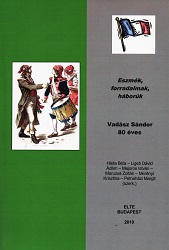
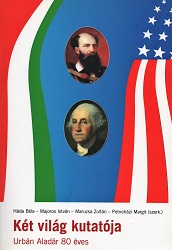
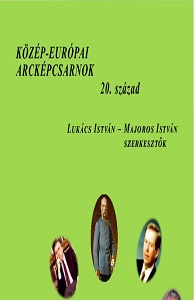
Hantos’ ideas contained progressive elements and made a realistic of-fer to the states of Central Europe. Its timing was unfortunate, however, because the new nation states’ desire for separation made its realization more difficult. Also, Germany’s breakthrough, and its new network of bi-lateral economic relations made virtually impossible the alliance of the Central European countries. Other attempts at integration have emerged too which also weakened the process. Hantos’ recognition, and offer of freedom from old grudges was a viable alternative to the weary nations of Central Europe. Elemér Hantos was a precursor of the spirit seeking the possible ways of coexistence, and no longer just for Central Europe, but for the whole of Europe: to emphasize what unites us, not what separates us.
More...
Georgi Dimitrov (1882–1949) Bulgarian communist leader, head of state after 1945. His international recognition was acquired in 1933, follo-wing the German Reichstag–fire trial in Leipzig, where he was acquitted of Hitler's judges, accused by Herman Göring and Joseph Goebbels. He moved then to Moscow, where he became secretary general of the Communist International, wich controlled of the communist parties aro-und the world. He had a role in the elaboration of the popular front policy - successful in France and Spain. At the same time he had to suffer of Sta-lin's dictatorship, he had to experience the execution of. After 1945, with the Yugoslavian Joszip Broz Tito, many of his associates they saw the op-portunity in the Balkan Federation to loosening the dependence on Sta-lin. What Tito did, he did not succeed: the presence of Soviet troops in Bulgaria had decided the outcome.
More...
Life, later destiny, political and public work of Dr. Ágost Benárd, minister of welfare and labor and Alfréd Drasche–Lázár, extraordinary ambassa-dor and authorized minister, who were the signatories of the Peace Trea-ty of Trianon, on 4th June 1920 were beyond the scope of examination of the researchers and historians in the recent time. Present study is aiming to fill this gap, with presenting the two signatories’ political and public ca-reer. It covers their education, role in the First World War and their work between the two wars. It definitely refutes the allegations that Dr. Ágos Benárd and Alfréd Drasche–Lázár were weightless politicians who were willing to leave politics and who were voluntarily signatories of the peace treaty. By contrast, the study describes both politicians’ work after the signing of the peace treaty, and proves with persuasive arguments that they were two honest gentlemen, who were suffering of and said to be victims of the events, they were the formers of the 20th Century Central Europe.
More...
Gömbös Gyula (1886‒1936) prime minister of Hungary (1932‒1936) started his political carreer after the defeat of Hungary in the First World War as a well-trained and talented officer. On the basis of his radical views influenced by different effects and because of his policy as head of government many people considered him that he took over mainly Mus-solini’s and partly Hitler’s views and political practice and his thinking and discussing politics were characterized by these facts. This study analyses the strong similarities and the important differences among the ment-ioned three politicians in the area of the ideology and the exercise of po-wer. The differences in the internal conditions of the three countries and among the characters of the three politicians explain the said similitudes and the differences. According to the author it can be prouved that Gömbös tried to creat a system (diktatorship) that (1) is similar to the fas-cism and the national socialism; (2) it’s not a copy (except the unsuccesful trial of the acceptance of the Italian coorporate system), but it’s about be-ing in similar societies the politicians give similar answers to the challenges.
More...